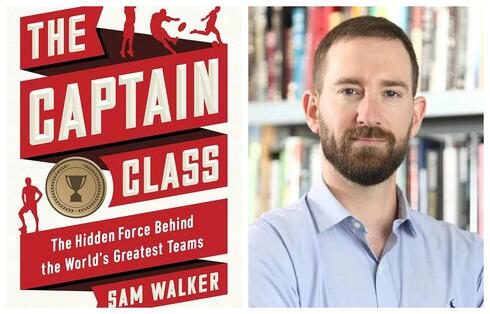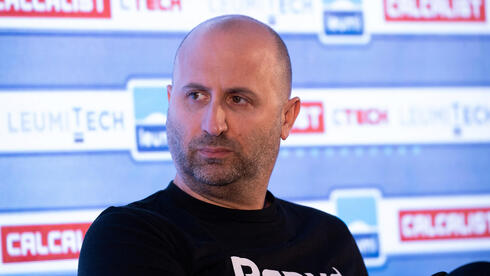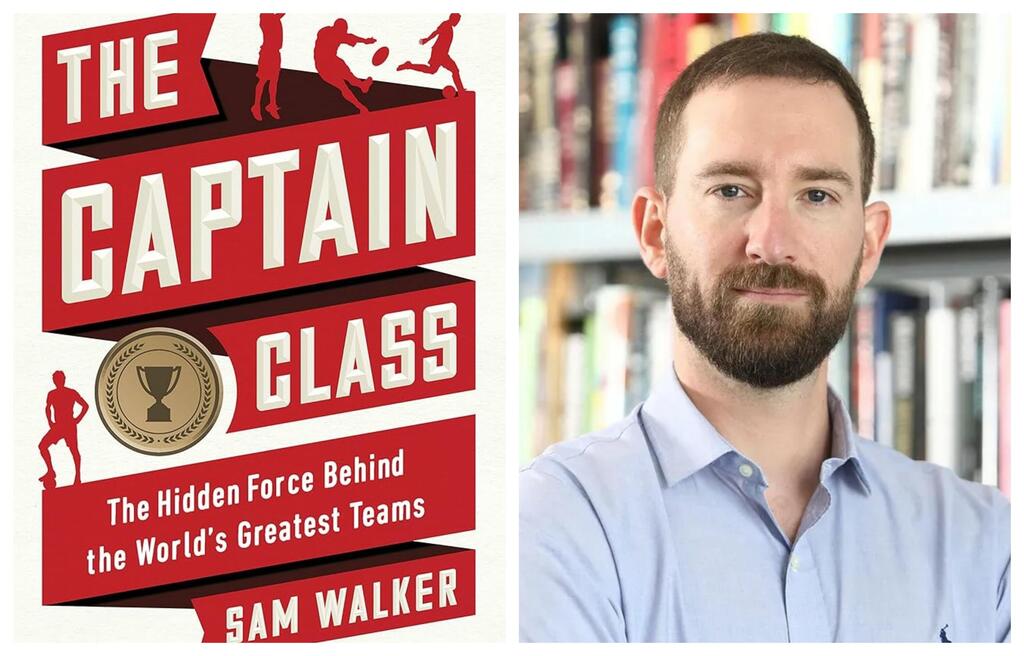
BiblioTechCTech’s Book Review: Exploring strong and silent leadership
BiblioTech
CTech’s Book Review: Exploring strong and silent leadership
Youval Rouach, CEO and Co-founder of Bits of Gold, has joined CTech to share a review of “The Captain Class: The Hidden Force that Creates the World's Greatest Teams” by Sam Walker
Youval Rouach is the CEO and Co-founder of the fintech company Bits of Gold, the regulated Israeli platform for trading digital currencies. He has joined CTech to share a review of “The Captain Class: The Hidden Force that Creates the World's Greatest Teams” by Sam Walker
Title: “The Captain Class: The Hidden Force that Creates the World's Greatest Teams”
Author: Sam Walker
Format: Book
Where: Home
Summary:
The book emphasizes refreshing insights into what makes the biggest teams in the world so successful - and no, it's not about the superstars or the great coaches. These are the quiet leaders behind the scenes and often go unnoticed. These captains are quiet and not big talkers, but they have a way of holding the team together and driving success in a subtle and powerful way.
Author Sam Walker identifies several qualities that make these captains stand out. They do the hard jobs, stay calm when things get tough, and build trust with their teammates. They are not people who are here for personal glory, but to help the whole group succeed. They are actually the backbone of the team, the ones who make sure everyone stays focused and connected. The book challenges the typical idea of leadership. Instead of the talkative, loud leader with excess charisma, he shows how quiet and stable leadership can be even more effective. The team captains lead and lead by example, keeping everything on track without needing thanks, fame, or the spotlight.
For anyone who leads a team - whether it's in different businesses, sports, or elsewhere - the book offers important lessons on building trust, resilience, and creating a team culture that thrives over time.
Important themes:
It is quite clear that the main theme of the book is that effective leadership does not always require being the loudest person or the one who talks the most in the room. The author of the book repeats many times throughout the book that many of the great leaders in sports were not the most charismatic or dominant players, but those who quietly supported their teams, built trust between team members, and set an example for the rest of their team members from small to large.
In the days when social networks are the cutting edge and dominate the discourse and how we behave as people, the idea of quiet leadership challenges what is accepted today regarding the spotlight, and shows that success often comes from leaders who focus on teamwork and resilience rather than personal promotion.
Another important topic that comes up between the lines of the book is modesty. In several different events in the book, the captains of the teams are highlighted who studied modestly and were willing to do the hard and unglamorous work that others avoided. This suggests that leaders who prioritize their teams' needs over their own recognition can build stronger, more cohesive teams.
The book also focuses on the power of perseverance. It is not wise to succeed when things are going well for you, but you also need to know how to remain calm and determined when faced with various difficulties and setbacks. This topic is particularly relevant to today's managers, who must navigate challenges and obstacles in the ever-changing world of the high-tech industry and crypto in particular.
What I’ve learned:
The book taught me that good and quality leadership does not have to be loud. As someone who believes in leading with a quieter approach myself, and having been both in a business company and professional sports team, this didn't surprise me, but sharpened my understanding of why this type of leadership is so effective. For leading groups of people, whether in business or on the sports field, success often comes from the leaders who quietly guide their teams, build trust, and keep everyone focused.
I've seen similar qualities in my own work, where creating a supportive and connected environment helps teams thrive and achieve long-term goals. In addition, I took some valuable tips into my toolbox. One of the key lessons was the importance of resilience, staying steady during tough times, without panicking, can keep the team grounded, and god knows how important resilience is in my sector. Another tip is to always lead by example. It's not about what you say but what you do that sets the tone for the rest of the team. By incorporating these lessons, I've found that quiet leadership, when combined with clear communication and consistency, can be incredibly powerful for long-term success.
Critiques:
Although the book offers important insights in my opinion, when I lent the book to a friend who runs a high-tech company, he felt that the book relied too much on sports anecdotes, which did not appeal to him like I did. He looked for broader business examples in the book and did not find any. Maybe it's because I'm a former athlete and he's not, but it was interesting to hear another opinion on a book that I was very impressed with. Additionally, from my perspective, there is a focus on one specific leadership style - quiet captains behind the scenes. This is a somewhat narrow reference, certainly in a changing world like the one we live in where there are different types of additional leadership.
Who should read this book:
In my opinion, anyone who is leading a team, or who wants to become a better leader, should read this book. Whether you're running a company, managing a small team, or even just trying to understand what makes a group of people work better together. The book shows that the real magic of a successful team isn’t about having the best individual people, but about having a leader who brings everyone together, even in ways that aren’t always obvious. If you care about building a strong, connected, and successful team, this book gives real-world, relatable advice that you can start applying right.















